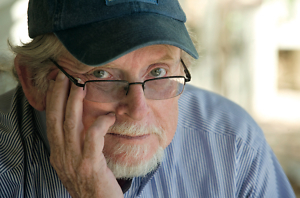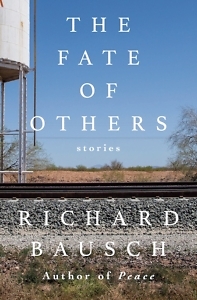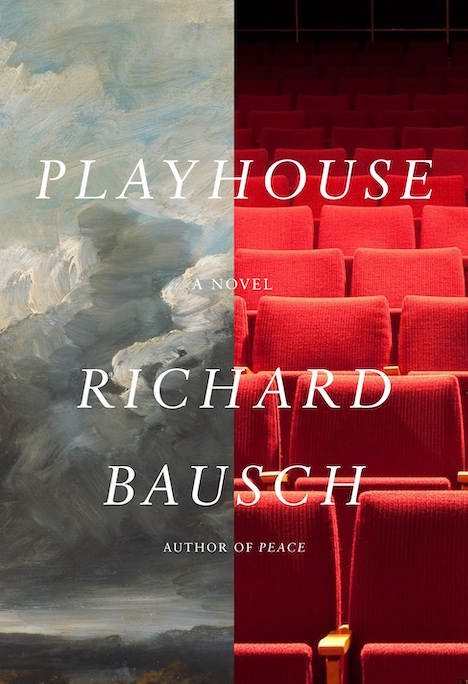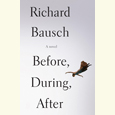Busy Dreams
Richard Bausch, legendary master of the short story, delivers a quietly astonishing new collection
A mother and father find themselves at odds over how to handle their troubled adult son, a relapsed alcoholic they believe may have killed someone during a blackout. A history professor nearing retirement recalls his childhood religiousness and his break with the Catholic Church before visiting an old friend with a terrible secret. A woman shelters at home with her husband during Covid while fearing for the life of the lover separated from her by the pandemic. A graduate student hosts his wife’s father, a famous poet, and ends up as the older man’s sidekick on a booze-soaked escapade involving public urination and an ill-advised attempt to jump a train. A boy, taken to Cuba by his parents in 1949 in their futile attempt to start a new life, is sent out for a newspaper and stumbles into a friendship of sorts with none other than Ernest Hemingway.

These are but a sampling of the various conceits in the stories which make up The Fate of Others, the newest collection from Richard Bausch, one of our most gifted and prolific literary artists and an acknowledged master of the short story form.
In these stories, Bausch writes in a style and with a sensibility that feels comfortingly familiar, evoking his own early work and that of his peers writing what came to be known as “New” or “Dirty” Realism — Carver, Beattie, Ford, Wolff, Hempel, Williams, Gaitskill. There is no hint of chasing a perceived zeitgeist, no ostentatious attempts at formal experimentation, nor any of the other preoccupations that seem to dominate the ever-narrowing sliver of the marketplace afforded to literary fiction. There are just people like the ones we all know, with problems we’ve either faced or observed with pity and anxiety.
Several of the stories are set during the pandemic or in its early aftermath, but they are not “about” Covid or political polarization or any issue other than the mysteries of the human heart. But for the inevitable markers of time, they might have been written by Chekhov (indeed, in one story, Bausch introduces a gun which ends up not being fired — a perhaps intentional subversion of the “Chekhov’s Gun” principle: the idea that a gun should not appear in a story unless someone’s going to shoot it).
 Curiously, Bausch opens the collection with “In That Time,” in which Ernest Hemingway appears, not too far removed from his own final encounter with a gun, but here, as a wine-swilling sage and mentor to a boy with a difficult father. The title alludes to Hemingway’s first story collection, In Our Time, in which the young Hemingway wrote, as Bausch does, about the quiet moments between eruptions of chaos when damaged people experience the epiphanies they so rarely heed.
Curiously, Bausch opens the collection with “In That Time,” in which Ernest Hemingway appears, not too far removed from his own final encounter with a gun, but here, as a wine-swilling sage and mentor to a boy with a difficult father. The title alludes to Hemingway’s first story collection, In Our Time, in which the young Hemingway wrote, as Bausch does, about the quiet moments between eruptions of chaos when damaged people experience the epiphanies they so rarely heed.
In Bausch’s story, Hemingway, sensing that the boy is beleaguered and perhaps abused by a tyrant, toys with his new protégé’s father, prompting a startling discovery by the youngster: “In that moment, for the first time in my life, I saw my father as a person. I saw a man down on his luck. And I wanted Hemingway to stop. He had bought me breakfast and was supposed to be my friend. But I wanted him to let my father alone.” For Bausch, the chaos — violence, disease, self-abuse, betrayal — is secondary to its consequences. The real wounds are only felt after the scars have formed.
The Fate of Others concludes with “Broken House,” a long story — almost a novella — in two parts. In the first, the narrator, an aging history professor, recounts his childhood experiences as an altar boy, leading up to the moment of boyish mischief that instigates his retreat from the Catholic Church and his ultimate abandonment of faith. In the second, the narrator reunites with one of his boyhood friends and partners in crime and is told a devastating secret. I’ll not spoil it here. I’ll simply say this: What Richard Bausch achieves in this and several other stories in The Fate of Others strikes me as a kind of transcendence, a reckoning with life’s accumulation of bewilderment, sorrow, and regret that seems to suggest telling stories might be the soul and spirit’s only real hope of survival.
Reading this volume, I could not help but recall a not-so-distant past when the short story was still a popular, widely read form in which the best writers of their eras delivered some of their best work, to wide acclaim and readership, writing about what Arthur Miller called “the tragedy of the common man.” Richard Bausch has been at the top tier of that class of writers for a very long time. Few have limned the struggles of the human heart in a forlorn world so gracefully. Bausch’s people are — there’s no better way of saying it — us. His gift is to show us ourselves as we are, as we were, and as we hope to be. His work proves that times change, but people are the same as they’ve ever been: still broken, still yearning, still hungry, still reaching for something we can almost touch.

Ed Tarkington is the author of two novels, Only Love Can Break Your Heart (2016) and The Fortunate Ones (2020). He lives in Nashville.


